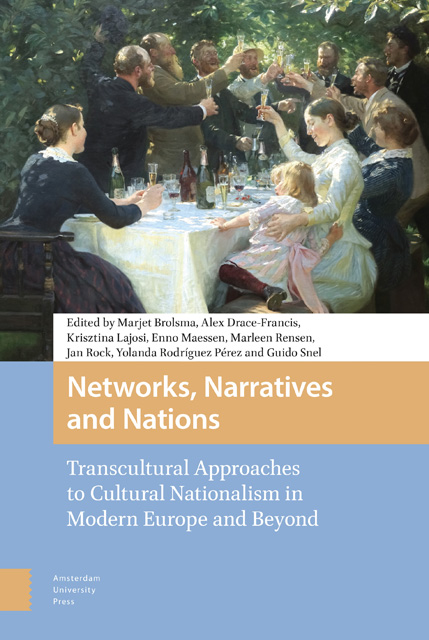 Networks, Narratives and Nations
Networks, Narratives and Nations Book contents
14 - The Genesis of a National Product: Henry Havard and the Renewed Interest in Delftware, 1850–1920
Published online by Cambridge University Press: 16 November 2022
Summary
Abstract
The publication of the Histoire de la faïence de Delft (History of Delft Earthenware, 1878) by Henry Havard renewed interest in Delft porcelain in the second half of the nineteenth century. Written by a French exile working in The Hague, the work was simultaneously a homage to the liberty of the Dutch Republic and contributed to the nationalization of Delftware. But three decades later he refused to publish a new Dutch edition, and now regarded Delftware as exclusively a product for an international collectors’ community. However, the national dynamic was unstoppable, and in 1916 the Rijksmuseum formally declared Delft porcelain to be a high point of the Dutch Golden Age.
Keywords: Delftware; Henry Havard; cultural nationalism; museumization
How was it that Delft faience developed into an icon in the hall of Dutch stereotypes, along with tulips, windmills and Volendam maids in traditional dress? It did not happen automatically. In the Dutch Republic of the seventeenth and eighteenth centuries, many factories were producing Delftware, turning out plaques, bowls and plates, vases, jugs and salt cellars, Chinese figurines and animal figures, in blue-and-white or polychrome, for the domestic and international markets and with a string of artistic and technical innovations. By around 1850, however, this industry had lost momentum; the interest in Delftware had evaporated.
The focus in this chapter is on the role played by Henry Havard in the rediscovery and renewed appreciation of Delftware in the second half of the nineteenth century. Havard was born in 1838 and moved with his parents from the town of his birth (Charolles in Burgundy) to Paris, where during the Second Empire he became involved with republican and radical organizations such as the Ligue Internationale de la Paix et de la Liberté (International League for Peace and Freedom). This in turn led him to become an active member of the Paris Commune in 1871. The suppression of the rebellion ushered in a long period of exile for Havard in Belgium and mainly in the Netherlands. How was a French exile able to enrich the Dutch canon with a product that came to be prized not just in the Netherlands, but among collectors throughout Europe? This is the story of the (re-)birth of a quintessentially Dutch national product in a transnational context.
- Type
- Chapter
- Information
- Networks, Narratives and NationsTranscultural Approaches to Cultural Nationalism in Modern Europe and Beyond, pp. 167 - 186Publisher: Amsterdam University PressPrint publication year: 2022


